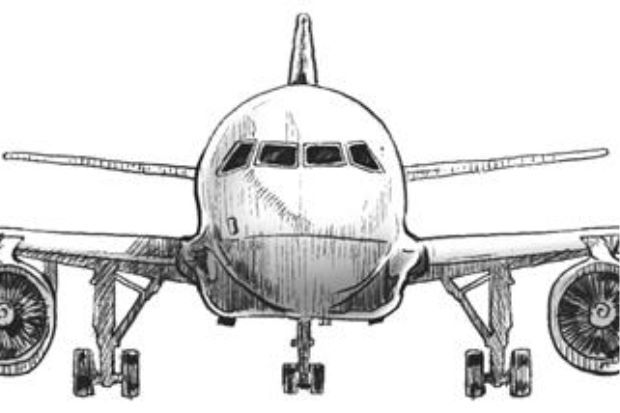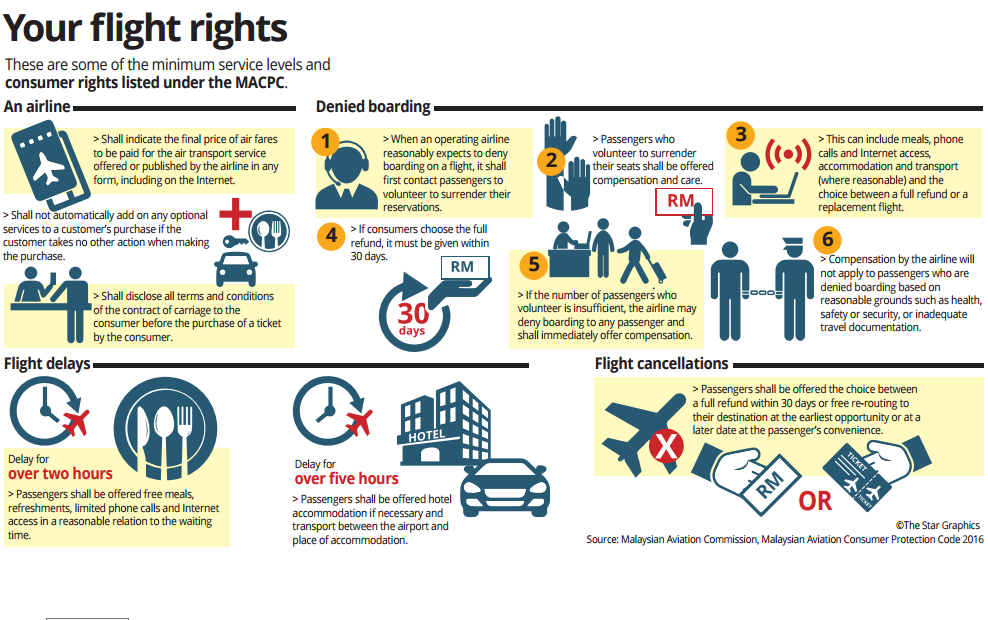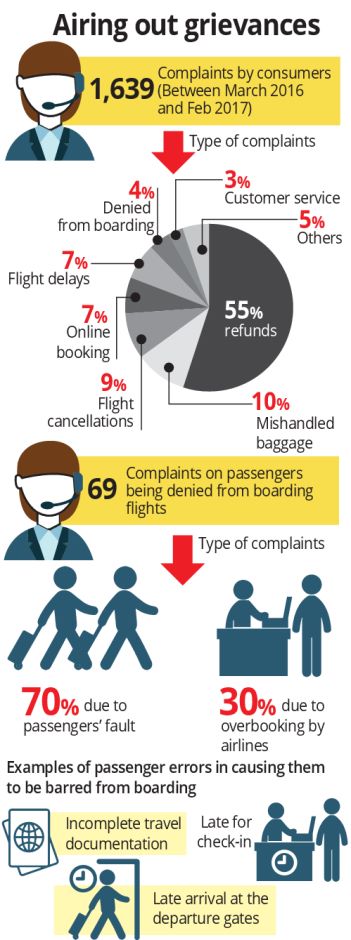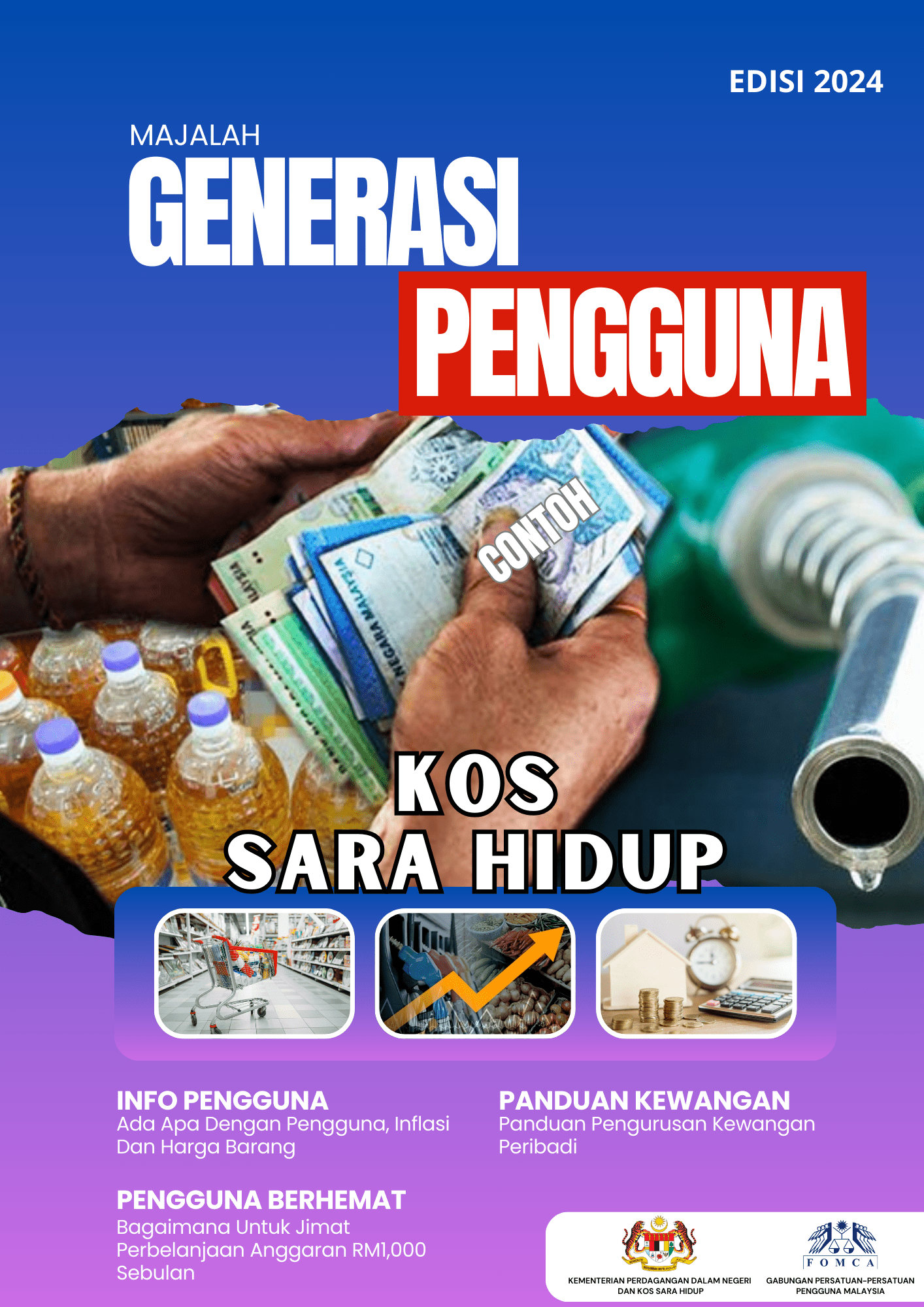
THE dust has settled on the United Airlines incident in which a passenger was violently dragged off an overbooked flight.
And while it is still tough to forget the shocking images from that viral video, the suit brought against the airline by the passenger, 69-year-old Dr David Dao, has been resolved with the airline and Dr Dao reaching an undisclosed settlement in April.
Over here, thankfully, there haven’t been any cases of passengers being forcibly removed from their seats due to overbooked flights.
But passengers have been stopped from boarding.
And, unlike in the United Airlines case, most these incidents were caused by customer error.
There were 69 complaints from passengers who were stopped from boarding flights, according to an inaugural consumer report by the Malaysian Aviation Commission (Mavcom).
These cases made up 4% of the 1,639 complaints Mavcom received from passengers against airlines and airports between March 2016 and February this year.
But while 30% of these complaints were indeed due to overbooking by the airlines, 70% of them was due to the passenger’s fault, reveals Mavcom consumer affairs director Pushpalatha Subramaniam.

“Some issues involving the passenger’s error include having incomplete travel documentation, being late for check-in or being late at the departure gates,” she explains in an interview with Sunday Star recently.
Pushpalatha says overbooking by airlines isn’t unheard of and can be considered an industry norm. It is guided by each airline’s respective procedures and guidelines, she adds.
Overbooking is a situation in which an airline has sold more tickets than the number of seats available on a flight.
“Some calculated decisions are made based on the historical data of a particular route. Sometimes, consumers may book a flight but not turn up. So it ends up becoming a waste of seats.
“Overbooking happens on the odd chance that all passengers decide to turn up. The standard practice is to ask for volunteers to give up their seats and, in most cases, that is what is done here,” she says.
But, fortunately, airlines are normally able to avoid such awkward situations.
Pushpalatha says that, typically, airlines are able to flag flights that have been overbooked and will call for volunteers to surrender their seats in exchange for benefits even prior to arrival at the airport or at the check-in counters.
“In this way, if there is an expected case of overbooking, customers are managed and offered options for the travel,” she elaborates.
To date, there has been no incident of forcible removal here in Malaysia, based on a report by The Star in April, following the United Airlines case.
Pushpalatha says in Europe, some people are given up front cash compensation if they have to be denied from overbooked flights.

“So far in Malaysia, airlines are doing a fairly decent job in providing compensation for passengers. In fact, being bumped off flights is quite unheard of here,” she says.
But in the event it happens, the new Malaysian Aviation Consumer Protection Code 2016 (MACPC), which came into effect in July last year, ensures that passengers will be duly compensated.
Under the code, consumers who have been denied boarding due to overbooking by an airline should receive compensation or care, which includes meals, phone calls and Internet access, accommodation and transport (where reasonable), and the choice of a full refund or a replacement flight.
If consumers choose the full refund, it must be given within 30 days.
The code, which outlines air passenger rights and minimum service levels and standards, also covers compensation and care for flight delays and cancellations.
Details of the code are available at the Mavcom website, tinyurl.com/the-star-aviation.
Before the end of this year, Mavcom will introduce clearly-defined penalties against airlines that breach passenger rights under the code.
It was reported that Mavcom, which marked its first anniversary on March 1, managed to solve 95% of the grouses in its first consumer report released in April.
Of all the complaints received by Mavcom, refunds dominated at 55%, followed by mishandled baggage (10%), flight cancellation (9%), and delays (7%).
So far, the highest amount of refund received is RM15,000 for a woman whose wheelchair was damaged by an airline.
But there is still a need to raise consumer awareness, as a survey in May 2016 showed that 69% of consumers thought that it was the airlines’ terms and conditions that defined their rights.
“This indicates that there is much more that Mavcom needs to do to improve consumer awareness of their travel rights.
“The Commission will continue with our efforts to broaden awareness of consumer rights with educational programmes regarding passenger rights across various channels and platforms,” says Pushpalatha.
On communicating optional services to consumers in a clear and transparent manner, Mavcom is pleased to note that all local carriers have complied with such requirements as of August last year.
“Allowing consumers the choice to opt-in for additional airline services promotes greater transparency and clarity.
“For example, any optional services that are offered by the airline should be communicated in a clear, transparent and unambiguous manner at the start of any ticket reservation process.
“This ensures that consumers only pay for services they have opted for,” she says.
Pushpalatha adds that Mavcom hopes to come up with consumer reports on the industry every six months.
“Our second consumer report is expected to be ready by October this year,” she says, adding that Mavcom is also in the process of coming up with a report on the outlook of the industry by the third quarter of this year.
But so far, Pushpalatha notes that there has been some progress in growth in the aviation industry compared with 2016.
“From the trends and data monitored thus far, the outlook for the industry appears to be positive.
“Mavcom has received and approved more Air Traffic Rights applications compared to last year, an indication of network expansion and industry growth,” she says.
While industry growth seems promising, Mavcom stresses the need for airlines to continuously address any shortfalls in customer service.
Calling on airlines to improve response time to consumers’ complaints, Pushpalatha points out that the MACPC stipulates that all complaints must be resolved within 30 days.
“The Commission understands that some of the complaints received by airlines and airports are more complex in nature and may involve multiple departments or agencies.
“Taking this into consideration, the Commission had allowed a threshold of 90% of case closures within 30 days,” she says.
At present, she says that about 75% of cases are resolved in 30 days, falling slightly short of the target.
“Airlines need to fix the issues that are within their own ecosystem, which would be the ‘low hanging fruits’ that can be addressed quickly, such as ticket refunds,” Pushpalatha urges.
Welcoming Mavcom’s efforts in coming up with penalties for airlines that breach the MACPC, Federation of Malaysian Consumer Associations (Fomca) secretary-general Datuk Paul Selvaraj describes the move as timely.
“We fully support the initiative as there has yet to be strict action taken against airlines that violate passenger rights.
“Such action is timely as it is becoming quite common for complaints to be lodged against airlines for delayed flights and mishandled baggage,” he says.
Selvaraj also hopes that the response time for airlines to attend to consumer grouses can be sped up.
On cases of consumers being barred from boarding due to their own mistakes, he advises passengers to be more careful to avoid such situations.
“To be fair, consumers also have to do their part and have things in order. If consumers are at fault, they too have to take responsibility,” he points out.
However, at the same time, Selvaraj hopes Mavcom will do more to educate consumers about their rights when travelling.
Echoing Fomca’s sentiments, frequent air travellers also feel it is time for airlines to be more responsible.
Businessman Mohamed Rosli Ismail says he finds it especially annoying when airlines do not clearly state airfare charges.
“I just wish airlines would clearly state the final price of tickets when they advertise their promotions.When you add on the check-in luggage, tax and other charges, the price ends up becoming a lot higher. Why not just state the full sum? It only confuses customers,” complains the 32-year-old.
Mohamed Rosli says it is time for airlines to stop adding hidden charges, as it is unfair to consumers.
“Airlines are already benefiting from our business. As such, they should be more ethical in how the treat customers,” he adds.
Management consultant Beatrice Teh, 29, is also irked by the extra charges that the airlines’ booking system only includes at the end, when you are proceeding to check out and pay for the ticket online.
“This happens mostly with low cost airlines. After you have chosen what you want online, suddenly, you will be told that there will be extra fees,” she says.
Teh says the biggest inconvenience she has experienced was when her flight was delayed for one hour when all passengers had already boarded the plane, making her late for a dinner appointment.
“There was another time when my flight was cancelled. But I was fully reimbursed. So that was good,” she says.
She hopes the new code and its penalties will be able to protect consumers from unethical practices so that flying will be a more pleasant experience.
Source : 4 June 2017 The Star
http://www.thestar.com.my/news/nation/2017/06/04/barred-from-boarding-cases-of-passengers-being-stopped-from-boarding-flights-do-happen-in-malaysia-b/




